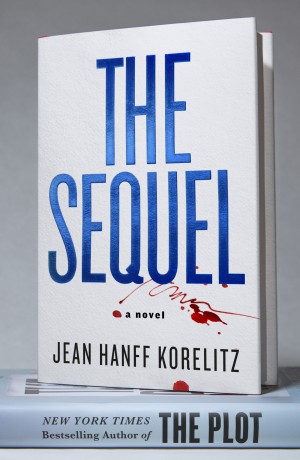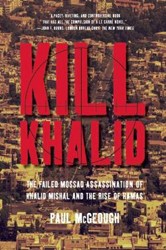In the wake of the recent Twelve Day War between Israel and Iran, novelist David McCloskey’s immersive espionage novel feels exceptionally timely, plunging readers deep into the “colder” but often deadly shadow war the two countries wage. For the most part, it’s a highly entertaining, impressively convincing achievement that bears comparison to some of the best work of Daniel Silva and Tom Clancy. The Persian contains many characters, each struggling with sundry shifting perspectives on the rapid and often fateful decisions they must make, yet somehow McCloskey makes it cohere so adroitly that the reader is never lost. And the author’s often deliriously fast-paced prose, richly descriptive but never overbearing, is exactly what many readers tend to applaud in this kind of suspense/spy fiction.
The eponymous character is Kamran Esfahani, an unsuccessful Iranian Jewish dentist raised in Sweden, lured into the dangerous shadowy world of high-stakes espionage. If at times a most reluctant and fearful spy, he eventually determines to rise to the occasion, goaded by the knowledge that his target “was the exact brand of theocratic, fascist, racist Persian who’d pushed my family out of Iran — our home for thousands of years — and was now laying siege to Israel, that great fortress for other Jews, in the hopes of burning it to the ground with seven million of them inside.” Unfortunately, things don’t quite go his way. Following sessions of torture, his elaborately detailed confessions to his Iranian captors — detailing various harrowing deeds performed on behalf of Mossad — make for heady reading. The haunting question of whether his confessions reveal the whole truth to the reader lingers tantalizingly until the final page.
This novel’s cycles of violence and retribution, its characters’ lives filled with duplicity and agonizing betrayals, could make for grim reading. But its short chapters often prove quite witty and surprisingly inventive. Juggling multiple threads and timelines, the narrative switches from first to third person, as readers gain ever-shifting perspectives on the white-knuckle action and its fateful consequences. Characters are vividly drawn and often endearingly quirky, such as this sketch of Arik Glitzman, the narrator’s Israeli handler: “Napoleonic, short and paunchy with a thatch of black hair and a round face bright with a wide smile. There was fun in his eyes and if they had not belonged to a secret servant of the State … they might have belonged to a magician, or a kindergarten teacher.” With such deftly cinematic descriptions and surefooted dialogue, some readers may find themselves already casting the inevitable film version in their heads. Glitzman heads an elite team within the Caesarea Division, responsible for cyberattacks, sabotage, and occasionally targeted killings inside Iran against nuclear scientists and high-ranking military officers. And yet poignantly, many of The Persian’s pivotal characters, on both sides of the conflict, secretly daydream of other realities, serene landscapes and open-ended futures, alluring possibilities that elude them in their world of intrigue, paranoia, and seemingly endless violent retribution.
While McCloskey purports to adopt evenhandedness toward each side of the festering conflict, there are a few moments that threaten to undermine this. Within the first few pages, the Israelis execute a scientist while painstakingly avoiding “collateral damage.” It’s a cringeworthy moment, given that we know how often that is not precisely the case. And just a few pages later we are introduced to an Iranian general with a record of sadistic torture apparently unmatched by his more principled Israeli counterparts.
Still, in a novel of this generous scope and ambition, these prove relatively minor flaws. And politics aside, McCloskey deserves full credit for weaving a colorful, often ingeniously plotted and excruciatingly suspenseful tale. As assured and fascinating are the authentic elements of espionage and spycraft McCloskey wields so nimbly, it is the often-humanizing details and complex motivations that ensure his novel achieves the art and intricacy of literary fiction at its very best. McCloskey is the author of three bestsellers and a former CIA analyst who served in field stations across the Middle East; and in constructing the world of this novel, he consulted with former Mossad officers as well as Iranians. The author’s deep familiarity with his subject illuminates every page of this book, easily one of the best thrillers in recent memory.
Ranen Omer-Sherman is the JHFE Endowed Chair in Judaic Studies at the University of Louisville, author of several books and editor of Amos Oz: The Legacy of a Writer in Israel and Beyond.





